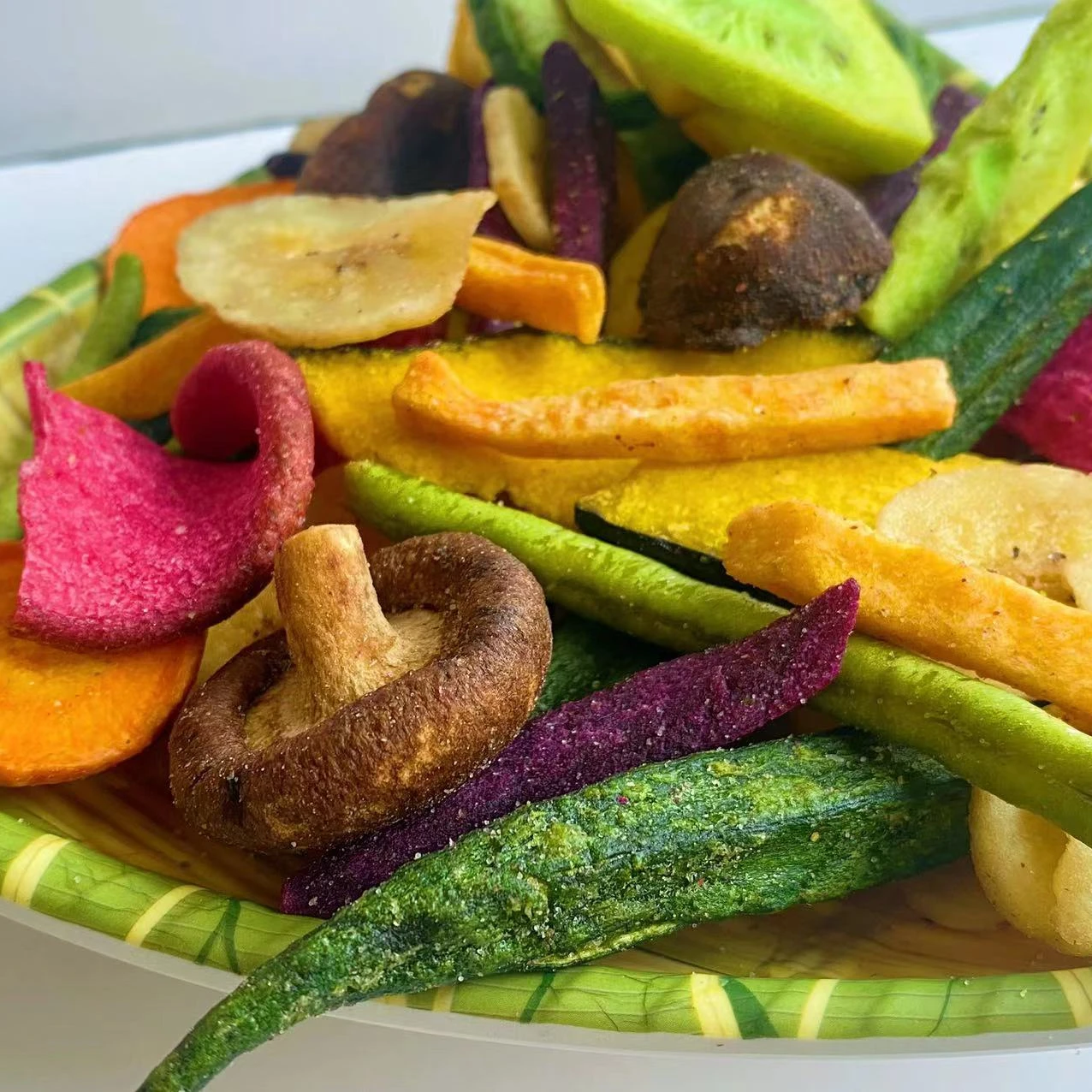Dried fruits and vegetables are nutrient-dense, offering essential vitamins, minerals, and fiber crucial for overall health. For instance, dried apricots are rich in vitamin A and potassium, contributing to eye health and proper cell function. Similarly, dried mangoes provide vitamins B, C, A, and E, which support immune and skin health. Dried snacks like these can serve as convenient ways to increase your daily nutrient intake, especially when fresh produce is unavailable.
Moreover, these snacks support digestive health owing to their high fiber content, which promotes regular bowel movements and aids in preventing constipation. Fiber-rich diets, like those including dried fruits and vegetables, have been linked to a lowered risk of colorectal cancer. The ability to improve gastrointestinal function justifies the inclusion of snacks such as prunes, which are known specifically for their digestive benefits.
Additionally, dried fruits and vegetables are packed with antioxidants that combat oxidative stress and inflammation in the body. A study published in the American Journal of Clinical Nutrition highlights that a high antioxidant intake significantly reduces the risk of chronic diseases. The antioxidants in foods like dried goji berries and prunes can neutralize free radicals, potentially lowering the risk of heart disease and other inflammatory conditions. These benefits underscore the value of incorporating vacuum fried vegetables and dried fruits into daily diets.
Vacuum frying is an innovative method that retains more nutrients compared to traditional frying, while providing a crispy texture that snack lovers crave. This technique significantly reduces oil absorption, allowing the natural flavors of the vegetables to shine through. Consequently, vacuum-fried vegetables such as carrots, sweet potatoes, and beets offer a healthier, yet equally satisfying, alternative to conventional chips.
Fruits like mangos, strawberries, and apples can be effectively dehydrated while preserving their sweetness and nutritional benefits. This preparation method yields a low-calorie, nutrient-packed snack option that is ideal for health-conscious individuals. Dehydrated fruits maintain their fiber content, providing a filling snack choice without the added sugars found in many packaged snacks.
Mixed dried fruit and vegetable chips are enjoying growing popularity as they offer a dynamic combination of flavors and textures. This blend provides a wide-ranging palate experience, encouraging healthier snacking habits. As consumers become more health-conscious, the trend towards these diverse, flavor-rich snacks is expected to continue its upward trajectory.

Incorporating dried snacks into your diet can enhance both flavor and nutrition without adding excessive calories. These versatile snacks can be used creatively in meal preparations. For instance, sprinkle dried fruits on oatmeal to add a sweet and chewy texture, or toss vacuum fried vegetables into a salad for an extra crunch. Additionally, creating your own trail mix with a variety of dried fruits and nuts can make for a convenient and healthy on-the-go snack.
Pairing dried fruits with other nutritious foods can help balance your diet. A popular suggestion is to combine dried fruits with nuts or yogurt. This mix provides a balance of protein, healthy carbs, and fats. According to studies, these healthy combinations can help stabilize blood sugar levels, offering a satiating snack that provides long-lasting energy. By integrating dried snacks creatively, you can maintain a fulfilling and health-conscious diet that is both delicious and beneficial.
While dried snacks are undeniably nutritious, managing portion sizes is crucial due to their calorie-dense nature. Eating too much dried fruit can quickly lead to an increase in calorie intake, which may result in unwanted weight gain. A good guideline to follow is to stick to a serving size, typically around a quarter-cup. This allows you to enjoy the health benefits without overindulging. Additionally, choosing unsweetened options can further help in controlling caloric intake, preventing spikes in blood sugar levels and aligning with dietary recommendations from health authorities like the American Heart Association.
Understanding added sugars is another key aspect when consuming dried snacks. Many dried fruits are sweetened to preserve taste and texture, which significantly increases their sugar content. Consistent excess sugar consumption can lead to various health issues, including obesity and heart disease. Therefore, it is advisable to choose unsweetened options wherever possible, which are available across many retail platforms. Health organizations frequently stress the importance of this practice, as it helps to mitigate the risks associated with excessive sugar intake while still enjoying the benefits of nutrient-rich dried fruits.
When selecting dried snacks, reading labels is paramount to understanding their nutritional content and identifying any additives or preservatives that may not align with a healthy diet. It's essential to be mindful of hidden ingredients that can alter the healthiness of a snack. For instance, some dried fruits may contain added sugars or oils that increase calorie intake and contribute to unhealthy fat consumption, as noted by various nutrition experts. Thorough label analysis helps consumers make informed decisions that align with specific dietary preferences or restrictions.
Choosing natural or organic dried snacks is another important consideration that aligns with the growing preference for clean eating among health-conscious consumers. Organic options are typically produced without the use of synthetic pesticides or harmful chemicals, providing a cleaner and potentially safer alternative. Health advocates continuously emphasize the benefits of minimizing exposure to such chemicals, advocating for organic options as a means to support overall wellness. By opting for snacks that are both natural and organic, individuals can enjoy their dried snacks while adhering to their health and dietary goals.
 Hot News
Hot News